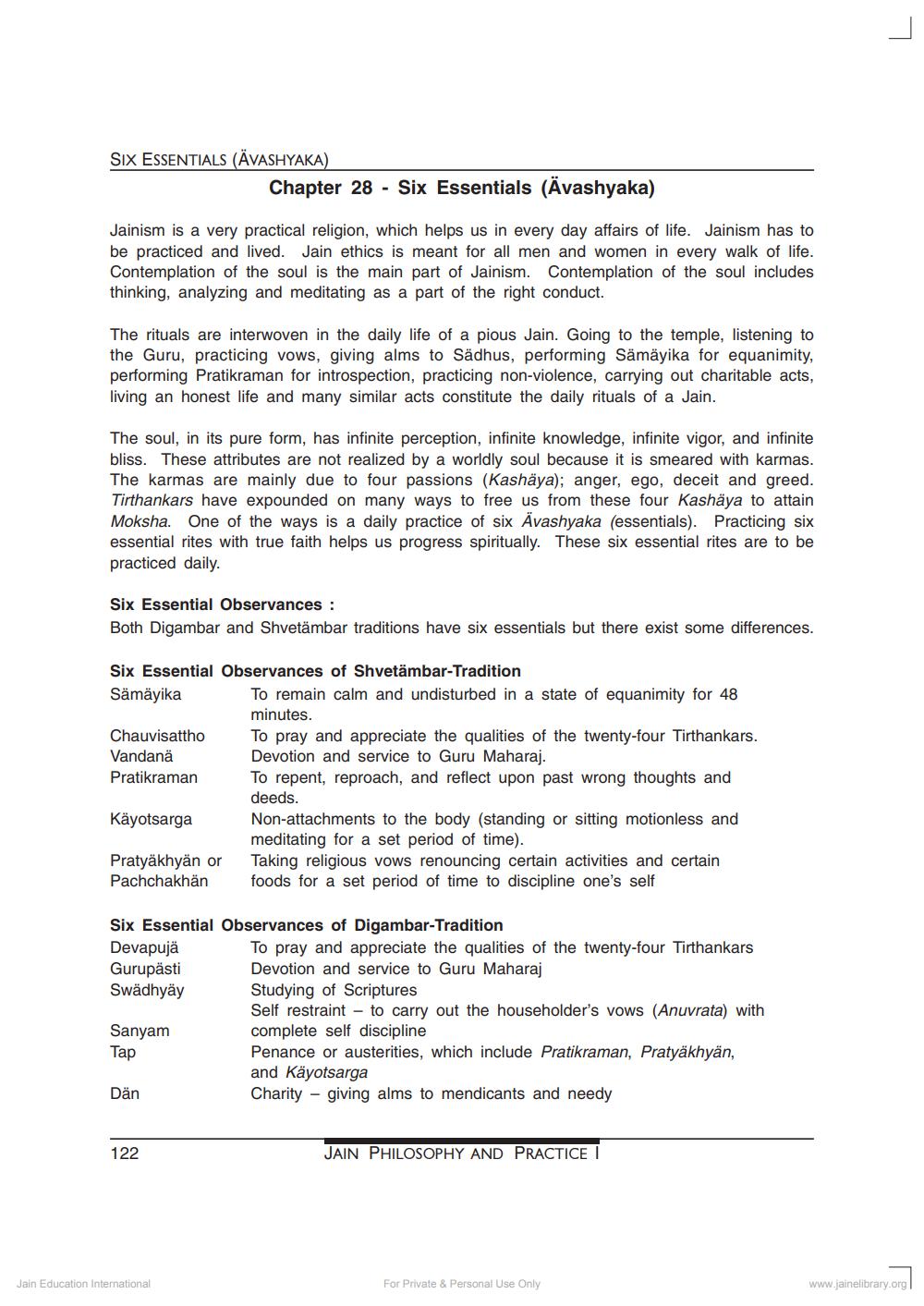________________
SIX ESSENTIALS (ÄVASHYAKA)
Chapter 28 - Six Essentials (Ävashyaka)
Jainism is a very practical religion, which helps us in every day affairs of life. Jainism has to be practiced and lived. Jain ethics is meant for all men and women in every walk of life. Contemplation of the soul is the main part of Jainism. Contemplation of the soul includes thinking, analyzing and meditating as a part of the right conduct.
The rituals are interwoven in the daily life of a pious Jain. Going to the temple, listening to the Guru, practicing vows, giving alms to Sädhus, performing Sämäyika for equanimity, performing Pratikraman for introspection, practicing non-violence, carrying out charitable acts, living an honest life and many similar acts constitute the daily rituals of a Jain.
The soul, in its pure form, has infinite perception, infinite knowledge, infinite vigor, and infinite bliss. These attributes are not realized by a worldly soul because it is smeared with karmas. The karmas are mainly due to four passions (Kashaya); anger, ego, deceit and greed. Tirthankars have expounded on many ways to free us from these four Kashaya to attain Moksha. One of the ways is a daily practice of six Avashyaka (essentials). Practicing six essential rites with true faith helps us progress spiritually. These six essential rites are to be practiced daily.
Six Essential Observances : Both Digambar and Shvetämbar traditions have six essentials but there exist some differences.
Six Essential Observances of Shvetämbar-Tradition Sämäyika To remain calm and undisturbed in a state of equanimity for 48
minutes. Chauvisattho To pray and appreciate the qualities of the twenty-four Tirthankars. Vandana
Devotion and service to Guru Maharaj. Pratikraman To repent, reproach, and reflect upon past wrong thoughts and
deeds. Käyotsarga Non-attachments to the body (standing or sitting motionless and
meditating for a set period of time). Pratyakhyan or Taking religious vows renouncing certain activities and certain Pachchakhan f oods for a set period of time to discipline one's self
Six Essential Observances of Digambar-Tradition Devapuja
To pray and appreciate the qualities of the twenty-four Tirthankars Gurupästi Devotion and service to Guru Maharaj Swadhyay Studying of Scriptures
Self restraint - to carry out the householder's vows (Anuvrata) with Sanyam
complete self discipline Tap
Penance or austerities, which include Pratikraman, Pratyakhyan,
and Käyotsarga Dän
Charity - giving alms to mendicants and needy
122
JAIN PHILOSOPHY AND PRACTICE I
Jain Education International
For Private & Personal Use Only
www.jainelibrary.org




